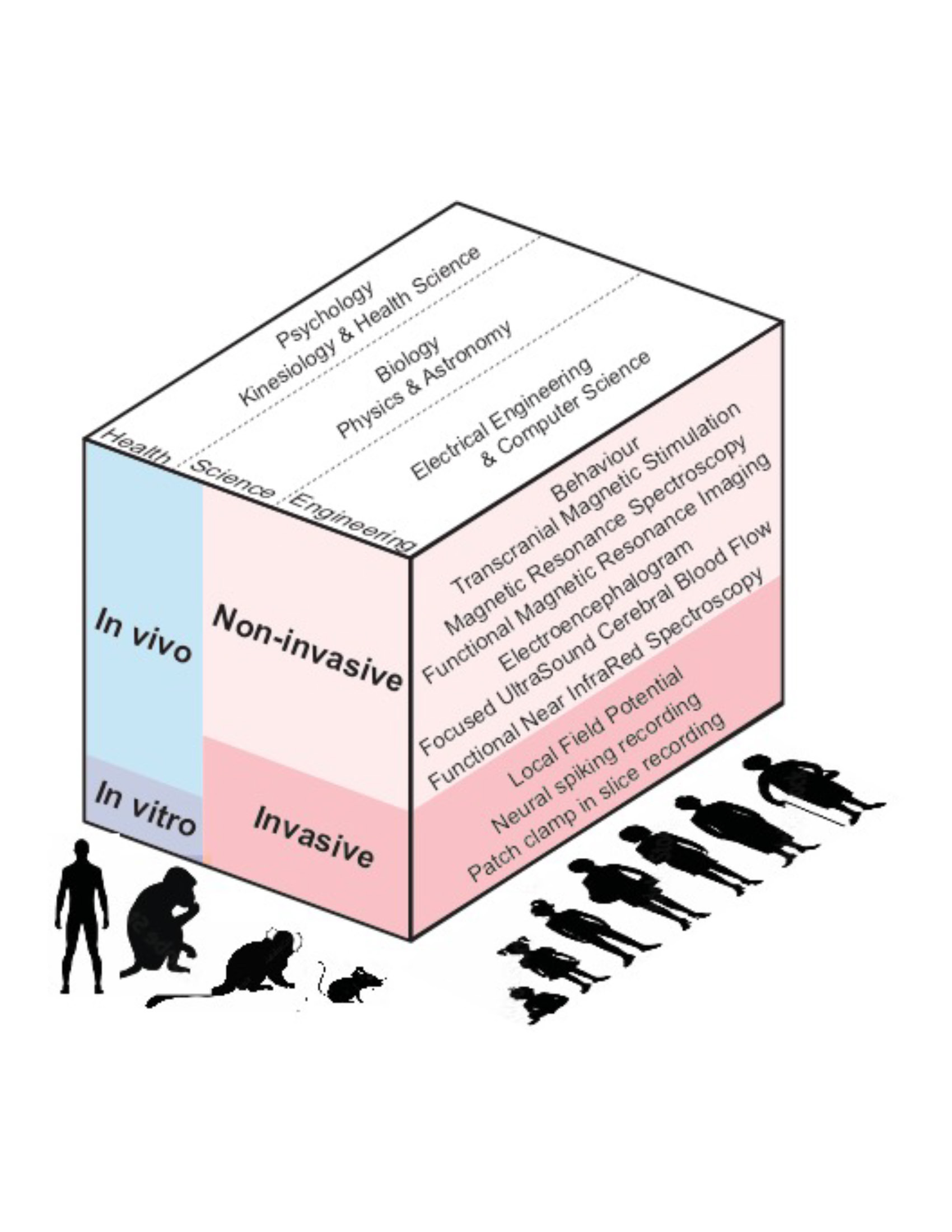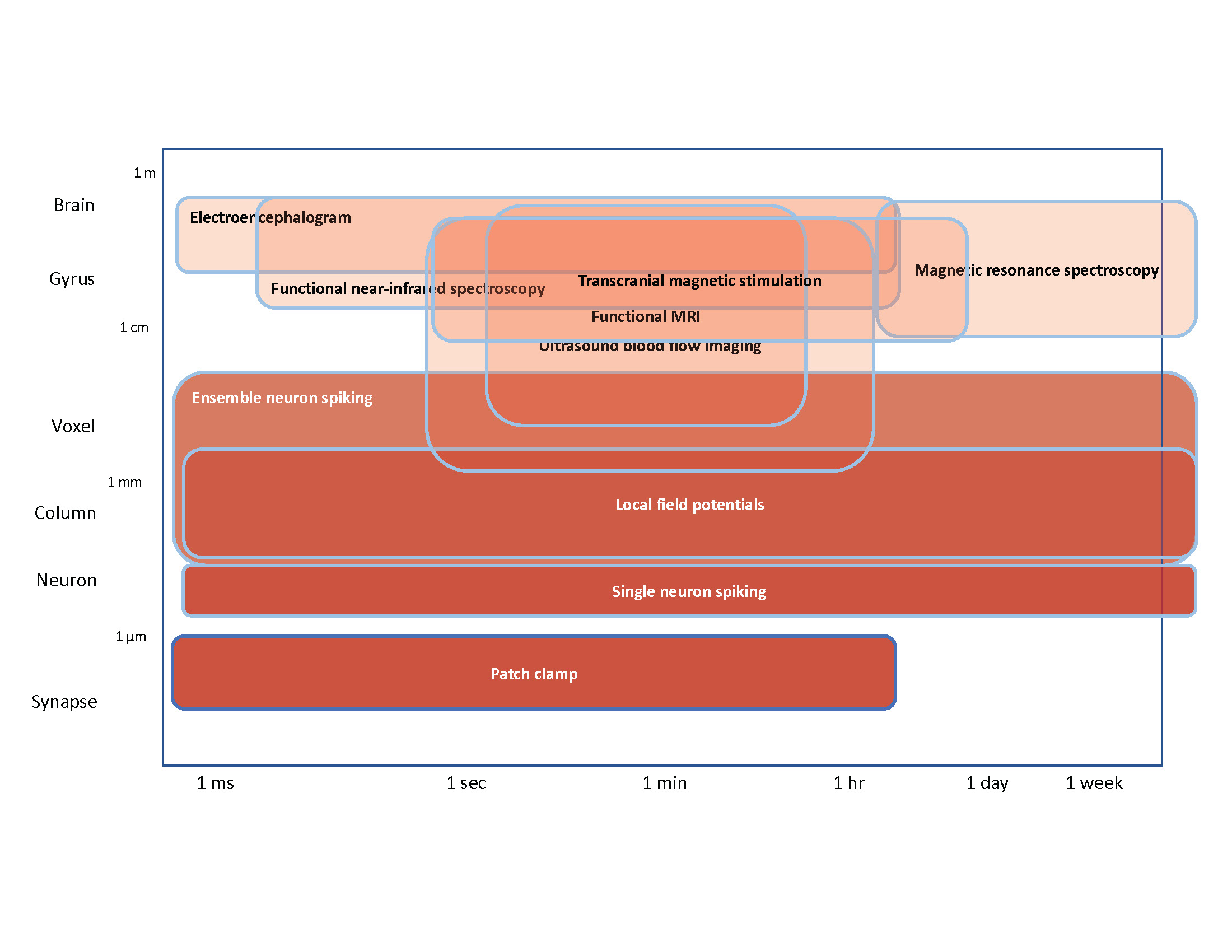POSTDOCTORAL POSITIONS
YORK UNIVERSITY, Toronto, Ontario, Canada
With new funding for “Translating Brain Signals Across Scales, Species, Sex, and Lifespan“, two postdoctoral research training opportunities have become available within a new interdisciplinary group consisting of York University faculty in the Faculty of Science (Steven Connor, Kohitij Kar, Ozzy Mermut, Jeff Schall, and Joel Zylberberg), Faculty of Health (Dorota Crawford, Doug Crawford, Heather Edgell, Erez Freud, Peter Kohler, Liya Ma, Lara Pierce, Shayna Rosenbaum, Jennifer Steeves, and Dale Stevens) and in the Lassonde School of Engineering (Hossein Kassiri). Collaborating faculty include Jorge Riera from Florida International University; Clement Hamani, Sean Nestor, and Jennifer Rabin from Sunnybrook Health Sciences Centre; and Brian Corneil with Julio Martinez-Trujillo from the University of Western Ontario.
To advance the clinical utility of non-invasive measures of brain function, we will elucidate the relations between microscopic, mesoscopic, and macroscopic levels of description using electrical, hemodynamic, and optical methods in mice, monkeys, and humans.
One position will bridge in vivo and in vitro (rodent and NHP) research. The second will bridge non-invasive and invasive (human and NHP) research. The research training of both will be co-mentored by at least two York faculty with different areas of expertise. Each will receive a stipend of $60,000 CAD. Appointments for the 2nd and 3rd years will be based on performance. To enhance the research training experience, each must apply for external funding at the earliest opportunity from Canadian Tri-council agencies or equivalent. If successful, such funding will be adjusted as a supplement and can extend duration of training.
Trainees associated with this research team will develop interdisciplinary skills preparing them for distinguished careers in the biomedical and natural sciences and engineering. They will have the opportunity to collect, process, and analyze data using state-of-the-art equipment and gold-standard methodology. Data will include in vivo EEG, fNIRS, fMRI, MRS, TMS, and transcranial Doppler measures obtained from human infants, children, and adults. These data will be supplemented by neural spiking, LFP, EEG, fNIRS, fMRI, MRS, TMS, and transcranial Doppler measures from macaque and marmoset monkeys plus neural spiking, LFP, EEG, and fNIRS in rodents, supplemented by in vitro slice physiology. Trainees will gain familiarity with design and fabrication of wearable or implantable sensors. Trainees will learn advanced statistical analysis, machine learning algorithms, and biophysical models linking levels of description. Further, trainees will develop skills in communicating findings to colleagues through local, national, and international conferences. They will also be challenged to communicate findings to the broader community in clinical settings and with industry partners. The research training experience will be enriched by relationships with the Centre for Integrative and Applied Neuroscience, the Centre for AI & Society, and the Centre for Vision Research and new research facilities.
York University has a longstanding commitment to the values of equity, diversity, inclusion, and social justice. We aim to create an inclusive and equitable environment for all, where the York community experiences a strong sense of belonging, connection, and well-being. Making positive change requires that all members of our community feel welcome, believe in a common purpose, and have a shared responsibility to support and enrich each other’s experiences to foster individual and collective success. We especially welcome applications from racialized persons / persons of colour, women, Indigenous / Aboriginal People of North America, persons with disabilities, LGBTQ2S+ persons, and others who may contribute to the further diversification of ideas. Among applicants with equal qualifications, preference will be given to candidates who enhance the diversity of the research team.
Postdoctoral trainees will be selected through an evaluation process with all the faculty rating candidates on research experience, productivity, and promise as assessed by a letter of application, a CV, and letters of recommendation from mentors. Send inquiries and application materials to brainsig@yorku.ca.
In January 2023 we will begin reviewing applications and interviewing applicants until the positions are filled.


